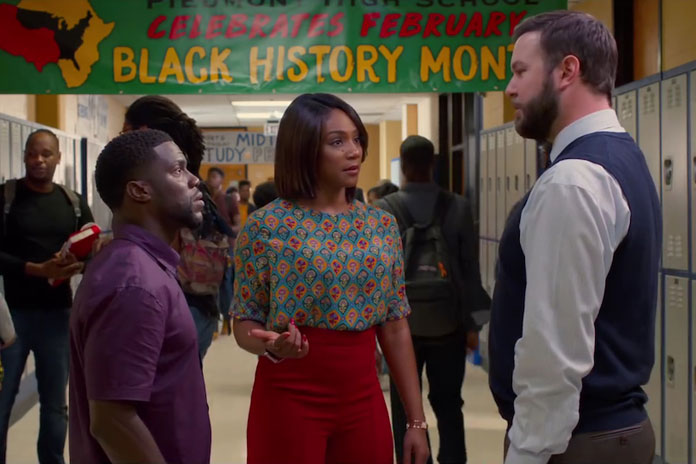Ahead of recording a session for Radio Ulster’s Across The Line at Belfast’s Start Together Studio, Villagers’ Conor O’Brien sits down with Brian Coney to talk through the writing and recording of his stellar, self-produced new album, The Art of Pretending to Swim.
Listen back to the ATL Live Session here.
1. Again
The underlying beat on ‘Again’ gives a real subtle, nocturnal club vibe. Did you intend that or was it accidental?
It was probably a bit of both. I wrote the riff and realised that it was basically 120 BPM, and I was like, “Cool, that will work with a four to the floor type thing.” And I have an 808, so I just put that on it. It was just sort of thrown together and seeing what happens.
Are there any plans for a remix?
I thought that was going to be the first choice, actually. But we’ve just got two remixes done and neither were of those two, which surprised me, because we gave the whole album out to people.
2. A Trick of the Light
The chord progression in this reminds me of certain Europop songs, late-90’s R&B and some Italo Disco. Did anything along those lines influence you?
That’s interesting. I had a pretty full-on night and next day in an Italo Disco club in Dublin, which used to be upstairs in the Odessa, and that was definitely around the time of writing this. So maybe I heard those chords…
Maybe so. There’s also the late 90s R&B thing, but it doesn’t remind me of anything particular song.
People always mention a similarity to Bill Withers’ ‘Just the Two of Us’.
3. Sweet Saviour
‘Sweet Saviour’ is a definite highlight. I can’t work out what this one is about. Can you shed some light on it?
It’s about memory and how it can affect you, and choosing to let it affect you in certain ways. If the album is a kind of cycle, it’s about the beginning of the low point, maybe. The looming woven tapestry memory of transcendental memory. It’s transcendental but sometimes that’s not necessarily a good thing. It’s about worship as well – “I’ve been praising you now for what feels like eternity” – and it’s kind of like starting to unattach yourself to that level of worshipping someone. But the kind of worship also depends on what mood I’m in when I’m singing it.
4. Long Time Waiting
The line “I don’t need no validation, from anyone at any cost” stands out for me. Is that anything to do with you as an artist in relation to how this album could be received?
Yeah, a little bit. Also, around that time, it was just after the marriage equality referendum and I was seeing Smirnoff ads on the buses with the Pride colours. You know, that’s a complicated issue, that whole thing, but it was like I thought I wasn’t allowed to live on this island and now, suddenly, I’m being used to sell your drink, or something. I just found that weird, and interesting. When it’s illegal to be yourself when you’re ten, and suddenly you’re being used to sell something. It’s a bit weird. So, shout-out to Smirnoff. But it wasn’t just about that, specifically. I was almost talking to myself a bit. The line, “If you believe that your time is coming, but you’re counting on your saviour to come”.
But like most songs, it’s sort of like an internal pep talk. You don’t need someone else. You need to do it yourself. Just, stop procrastinating and get the fuck out there and do stuff.
That’s the ultimate advice.
5. Fool
I’ve been listening to this one more than the rest of the tracks, and I keep hearing new things every time. Did you work a lot on that one?
Yeah, I worked a long time on the writing of it, but the actual recording was really quick. It just worked. I thought I was in a real slump. I’d been working on a couple of other songs, which are never, ever going to see the light of day. I was going insane, thinking, “I’m not getting anything good here. I’ll trying recording that one that I’ve been working on for ages”. There was loads of notes, and I was thinking it was going to be this big, sprawling epic thing, but then I thought, “I don’t have the time to do that. I just want to make a concise pop song, or whatever, and it really worked. It really made the words more luminous, and more interesting in a way, I think.
Did it come from around the time of writing Darling Arithmetic?
Yeah, it did. I have recordings from around then on my phone, but it’s a different thing. It’s a waltz timing, I thought it was going to be super-ambient and long.
6. Love Came With All That It Brings
This one leans on something you do very well: conveying the thin line between the pitfalls and ecstasy of love. Was it a hard to write?
Yeah, it was. It went through a lot of stages. And I think the way I got out of it was using a sample, from The Dixie Hummingbirds, and allowing that to feed back into where I originally thought the song was going to go. I did lots of different versions my friend Maaike (Van Der Linde) and her flute. We did all these really lovely, but almost like, elevator music versions of the song, which was really interesting because they were chiming with the lyrics in an interesting way. But it wasn’t until I made that loop of the sample, and changed the key of the song that it suddenly took on a different form. Then I got Maaike back, to play on it again, even though she was like, “I really like the original version!” But I overruled her, because it’s my album. She overruled me on her album, which I was producing at the same time. So we like to overrule each other.
7. Real Go-Getter
I like how the chorus of this – “Since I’ve got better, I’m a real go-getter” – is simultaneously meant and tongue-and-cheek.
When we do this one live, we add a bit on to the end where we rock it out in a different way. And it becomes a bit more earnest, which works for the live stage. The fact that the slightly sarcastic tone – maybe sarcasm isn’t the right – sort of disappears in the live version is kind of cool, because it happened very naturally. At the end, live, I’m just screaming, “Give all you got! Give all you got!” and it just feels like an audience-based feeling thing.
8. Hold Me Down
‘Hold Me Down’ reminds me of a Sparklehorse-like lullaby…
I totally get that. Afterwards, I totally realised I ripped him off.
It’s more of a mood than anything for me. Was it recorded differently – on a different mic maybe?
It wasn’t a different mic, but the rest of the album was recorded on a fancy pre-amp, and that was the first song that I did that was just directly into my desk. It was 3 in the morning, and I had got out of bed realising that I had fucking cracked the song. I had only just moved into the apartment and I didn’t know how loud I could be at 3 in the morning, so I was recording really quietly, and I had no time to hook up all the posh stuff. I built all the stuff around it and made it posher. Someone’s doing a remix of it at the minute.
I was anticipating it taking off and going into a crescendo but it doesn’t, which is great in a way.
Yeah, it kind of gets lost in the end and swims around a bit. I dig that.
9. Ada
You’ve had some very strong closers over the years. It sounds quite personal. Is it?
I think it is, yeah. On one level. On another, it was just trying to tie in the whole Ada Lovelace thing. For me, On the end of that song, on the full version, it ends up with seagulls, which the album begins with. So it’s meant to be a full cycle thing, and bringing in the idea of the algorithms that she discovered and how it was the beginning of our addiction to smartphone technology and that kind of stuff. It’s kind of a duality: it’s a beautiful thing and terrifying thing what she did, as the future computer programmer. But I didn’t want to talk about it in the song, I just wanted to worship.
I was listening to a lot of Slow Train Coming by Bob Dylan, which a lot of people skip over in his discography because it’s got all the 80s production and everything, which I think is really cool. But I was just obsessed with his idea that you’ve got to serve something. It’s true. Everyone is just serving something all the time. The idea of worship being something that’s really personal, and not connected to an organised religion of some sort is really interesting to me, because it’s something not for your personal gain, which is what you’re doing every day with your phone. It’s kind of finding something, and trying to go deeper.







